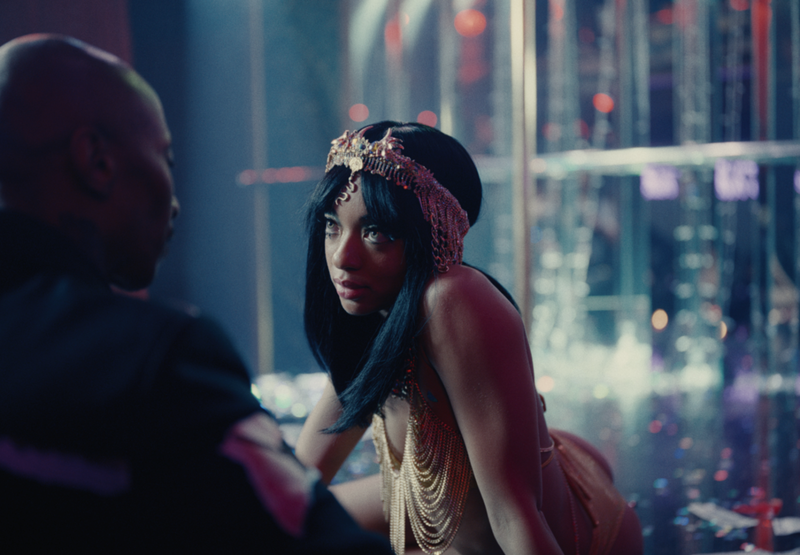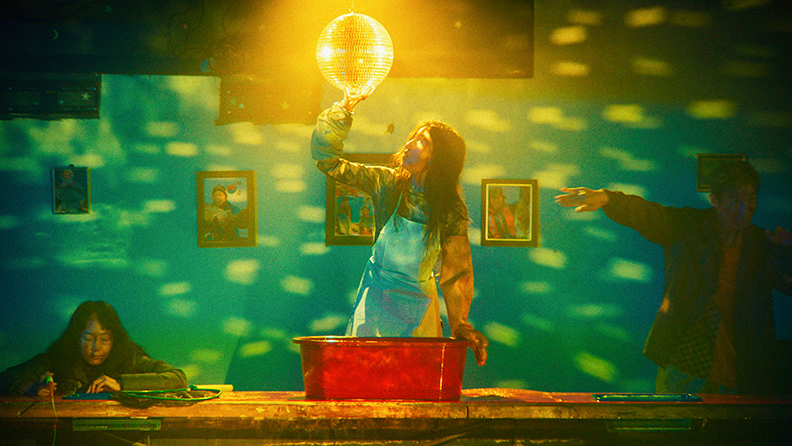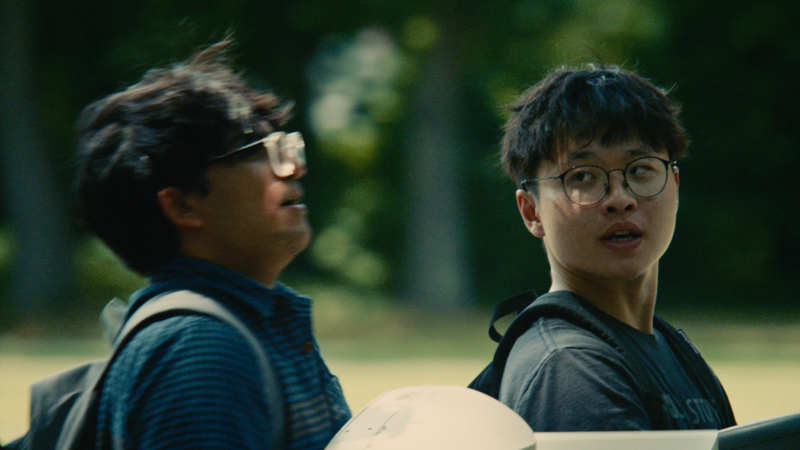
When Money Connects, Corrupts, and Complicates
MOVIE REVIEW
Money Talk$
–
Genre: Drama, Crime, Period Piece
Year Released: 2025
Runtime: 33m
Director(s): Tony Mucci
Writer(s): Tony Mucci, David Mazouz
Cast: David Mazouz, Zolee Griggs, Ethan Cutkosky, Francesca Scorsese, Fredro Starr, Bo Dietl, George DeNoto, 24kGoldn, Swoosh God, Claudia Robinson, Sean Pertwee
Where to Watch: shown at the 2025 Tribeca Film Festival
RAVING REVIEW: There’s no hero in MONEY TALK$, but there are so many stories — each bruised, each urgent, each tethered by a single hundred-dollar bill making its way through the desperate, messy arteries of 1981 New York City. In just 33 minutes, director Tony Mucci manages to capture something potent and sprawling: not just a snapshot of a city on the brink, but a mosaic of human motives wrapped around a currency that both binds and betrays everyone who comes into contact with it.
Set on the day of Ronald Reagan’s inauguration — a calculated detail — the film drops us into the “most violent year” in NYC’s history. But instead of following a single character, Mucci’s lens focuses on the $100 bill as it’s passed, stolen, spent, and discarded across borough lines and boundaries. The narrative could easily feel gimmicky, yet it works with surprising fluidity here. We move from taxi cabs to strip clubs to homeless shelters to birthday parties, each interaction brief but revealing. The money never stops moving. And neither does the story.
What’s particularly compelling is how that object — an impersonal green scrap of government promise — becomes the central character. It exposes. It doesn’t choose where to go, but it leaves a mark. Mucci and co-writer David Mazouz (who also co-stars as Franklin) understand the weight of this symbol, using it to build connective tissue between people who’d otherwise never share the same frame.
The ensemble is stacked, and that’s not an exaggeration. Ethan Cutkosky leans hard into chaos as a character dubbed Money Man Mojo. Zolee Griggs, in a quietly magnetic performance, plays Cleopatra with a watchful poise that softens the grime around her (and connects us in a way I wasn’t expecting.) Francesca Scorsese’s brief screen time turns heads, not just for her famous last name but for how she carries the exhaustion of a city girl two steps ahead of danger. Even 24kGoldn and Swoosh God appear in fully realized roles, reminding us how blurred the lines are between art, fame, and survival in this world.
Mucci, making his narrative directorial debut, has absorbed the language of cinema and throws it all onto the screen with a sense of urgency. This isn’t just a handheld tour of ‘80s nostalgia. It’s a barrage of stylized camera work — POV shots, hallway pans, interior close-ups that border on surreal. The film balances those flourishes with quiet devastation, never letting style completely overshadow substance.
Thematically, the short digs into more than just the socioeconomic grime of New York. It’s about complicity — how people become links in a chain they don’t even know they’re a part of. There’s a young boy whose birthday money takes a dark detour, a desperate mother relying on someone else's exploitation, and a cashier who sees beauty in someone passing through. The characters rarely know they’re connected. The audience always does. That’s the power of the film — watching what the characters miss.
Visually, the production nails the era without leaning too heavily on clichés. There’s an intentional dirtiness to the frame. Neon signs flicker, and the street tunnels hum with unseen menace. Costumes and set dressing feel just retro enough without screaming “look at the period!”
A few transitions between vignettes feel slightly rushed, and there’s the occasional moment where the style calls too much attention to itself. One segment involving a POV from inside a mouth, while memorable, may divide viewers. But even those moments speak to Mucci’s willingness to swing big. He’s not hedging here. He’s letting you know exactly what kind of filmmaker he wants to be.
If the film leaves you with a sense of unresolved tension, that’s the point. The $100 bill doesn’t get a happy ending — and neither does anyone who holds it. That may sound cynical, but in a film so deeply rooted in the moral ambiguities of the Reagan era, it fits. Nobody’s punished for their greed. Nobody’s rewarded for their virtue. Everyone’s just… trying. Sometimes failing and always spinning inside the machine.
And in just over half an hour, MONEY TALK$ says more about systemic inequality, personal desperation, and accidental entanglements than many full-length features. It’s gritty, loud, thoughtful, and at times even weirdly hopeful — not because it shows us redemption, but because it shows us clarity. When you follow the money, you learn exactly who people are.
That’s not just a gimmick. That’s storytelling.
Please visit https://linktr.ee/overlyhonestr for more reviews.
You can follow me on Letterboxd, Instagram, Twitter, and YouTube. My social media accounts can also be found on most platforms by searching for 'Overly Honest Reviews'.
I’m always happy to hear from my readers; please don't hesitate to say hello or send me any questions about movies.
[photo courtesy of INFINITY STUDIOS]
DISCLAIMER:
At Overly Honest Movie Reviews, we value honesty and transparency. Occasionally, we receive complimentary items for review, including DVDs, Blu-rays, CDs, Vinyl Records, Books, and more. We assure you that these arrangements do not influence our reviews, as we are committed to providing unbiased and sincere evaluations. We aim to help you make informed entertainment choices regardless of our relationship with distributors or producers.
Amazon Affiliate Links:
Additionally, this site contains Amazon affiliate links. If you purchase through these links, we may receive a commission. This affiliate arrangement does not affect our commitment to honest reviews and helps support our site. We appreciate your trust and support in navigating these links.



Average Rating